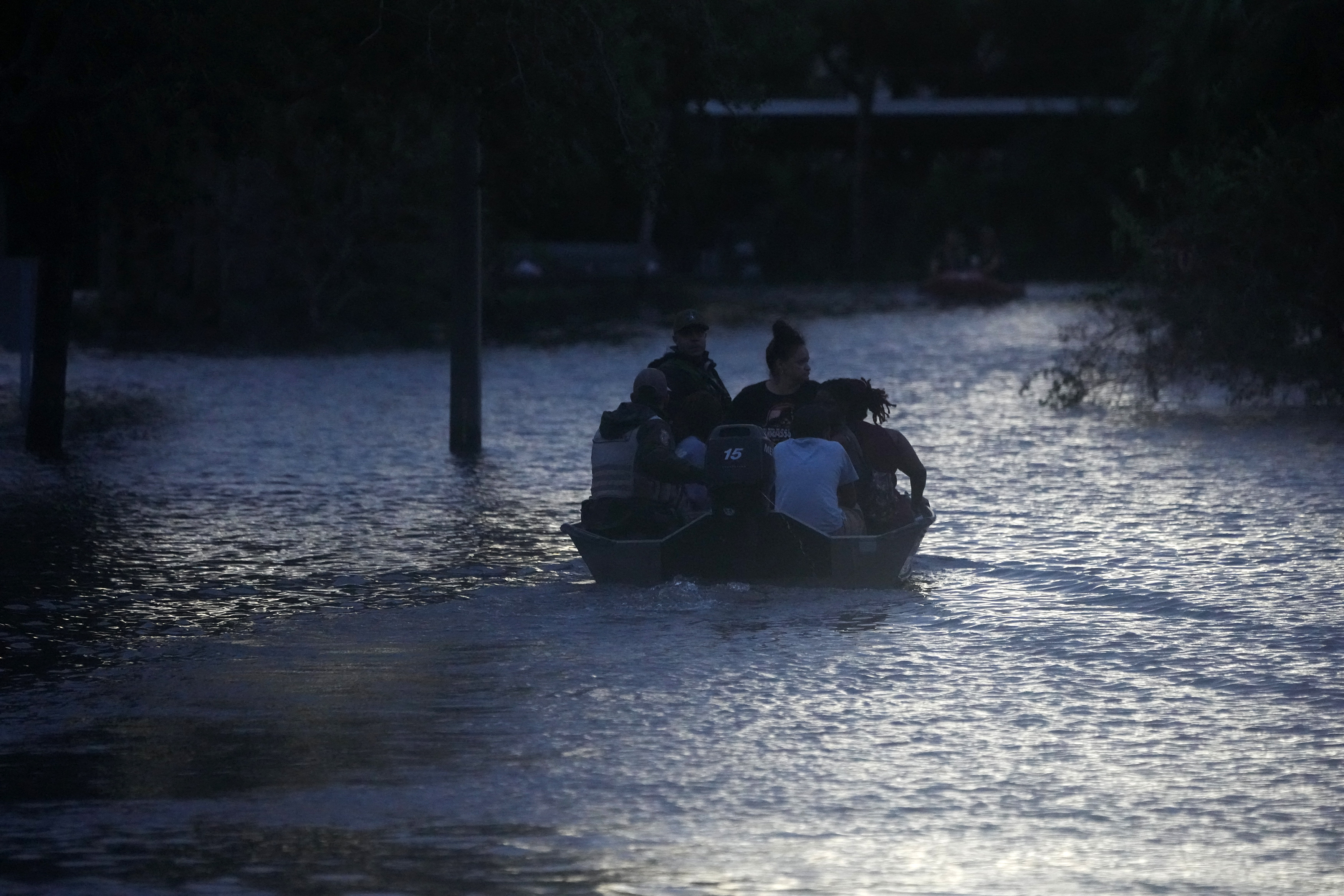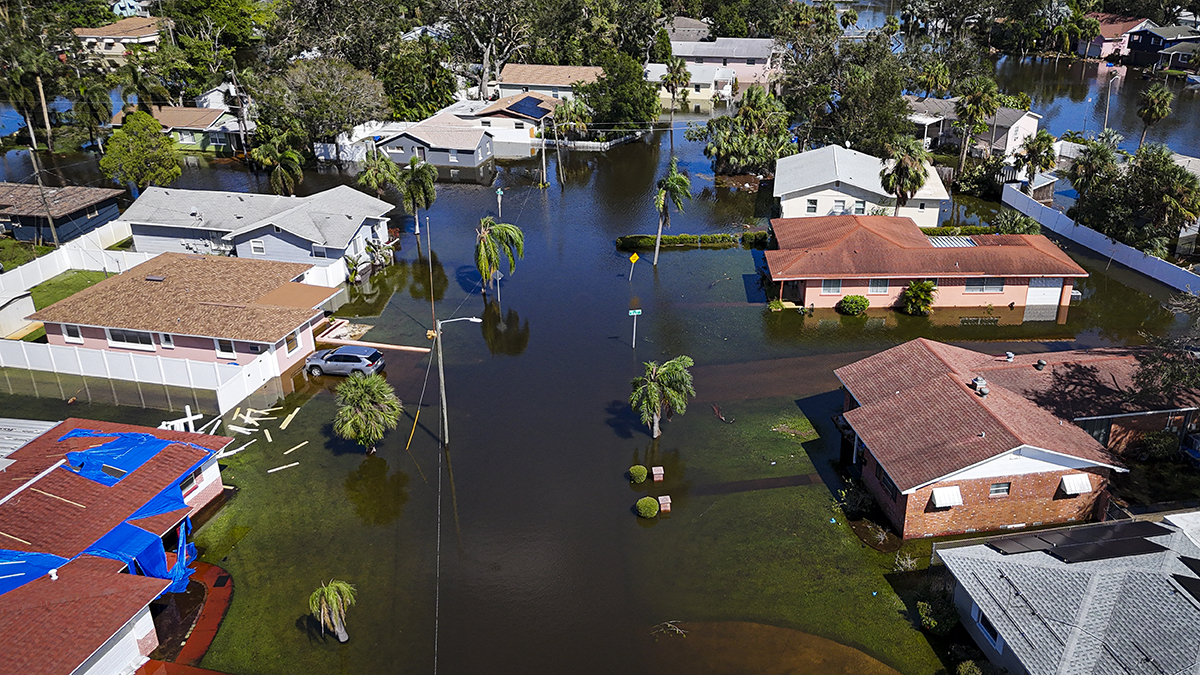As Hurricane Milton barreled into and across Florida, it spawned dozens of tornadoes, knocked out power to millions, damaged homes, flooded neighborhoods and led to hundreds of rescues. But the damage wasn't as bad as had been feared.
Gov. Ron DeSantis said that while the storm “was significant,” it “was not the worst-case scenario.” He noted that as he flew over some of the hard-hit areas, he saw that many homes that were built in recent years fared well.
“I’ve seen a lot of grit, I’ve seen a lot of determination and I’m very confident that this area is going to bounce back very, very quickly,” DeSantis said at a news conference in Sarasota, near where the storm made landfall on the Gulf Coast
The storm caused at least 17 deaths in the state, where some communities were still dealing with the damage from deadly Hurricane Helene two weeks ago.
Get Tri-state area news delivered to your inbox.> Sign up for NBC New York's News Headlines newsletter.
What happened after Milton hit Florida?
Milton came ashore Wednesday evening as a Category 3 storm near Siesta Key, a barrier island of white sand beaches on the Gulf Coast.
The storm made landfall about 70 miles south of the Tampa Bay area, sparing the densely populated area a direct hit.
As the storm made its way across Florida to the Atlantic Ocean it downed power lines and trees and flooded some neighborhoods. Even before making landfall, it spawned deadly tornadoes.
In St. Petersburg, Milton toppled a crane working on a 46-story building and destroyed the roof of Tropicana Field, home to the Tampa Bay Rays baseball team.
On Friday afternoon, over 2 million customers in Florida were still without power, according to poweroutage.us.
How bad is the damage?
Officials in hard-hit counties have warned people to beware of downed power lines, trees in roads, blocked bridges and flooding. Before Milton even made landfall, heavy rain and tornadoes lashed parts of southern Florida.
The storm knocked out power across a large section of the state, leaving over 3 million homes and businesses without electricity, according to poweroutage.us, which tracks utility reports. By 9 p.m., that had dropped to 2.8 million.
In St. Petersburg, a crane working on a 46-story building toppled and a water main break led the city to shut down service. Also the roof of Tropicana Field, home to the Tampa Bay Rays baseball team, was destroyed.
Just inland from Tampa, the flooding in Plant City was “absolutely staggering,” according to City Manager Bill McDaniel.
The National Weather Service said almost 19 inches of rain fell in the St. Petersburg area.
A manufacturer of IV fluids critical to hospitals nationwide said its Daytona Beach factory and distribution center were left intact after Milton.
How did people die in the hurricane?
Officials were reporting at least 17 deaths as of Friday morning.
Six people were killed when a tornado hit in the Spanish Lakes Country Club near Fort Pierce in St. Lucie County, authorities said.
In Volusia County, a 79-year-old woman in Ormond Beach and a 54-year-old woman in Port Orange died after trees crashed into their homes, the sheriff's office said. Two other "medical-related" fatalities were reported, according to Vulusia County Sheriff Mike Chitwood.
In Tampa, police said the body of a woman in her 70s was found Thursday morning under a large tree branch. Also in Tampa, a 55-year-old woman was killed in a car collision that police said happened because of inoperable traffic and street lights amid ongoing power outages. In Polk County, a 68-year-old county worker clearing up debris after the storm was hit by a fallen tree after another county employee crashed his truck into the debris.
A man in his 60s was found deceased in his yard after appearing to have stepped on a downed power line in Orange County. St. Petersburg Chief of Police Anthony Holloway said Thursday two people died in Pinellas County. One of the victims suffered a medical emergency and the other was found dead in a park. That person's cause of death was being investigated by the medical examiner.
And in Citrus County, a 46-year-old man was killed when a falling tree crashed into car in Land O' Lakes.
DeSantis said in the afternoon that search-and-rescue operations were ongoing, with at least 340 people and 49 pets rescued so far.
How did climate change impact Milton?
Human-caused climate change gave a significant boost to Milton, intensifying the storm’s rainfall by 20% to 30% and strengthening its winds by about 10%, scientists said in a new flash study.
World Weather Attribution researchers said Friday that without climate change, a hurricane like Milton would make landfall as a weaker Category 2, which is not considered a “major” storm, instead of a Category 3.
Climate change also boosted Helene’s wind and rain. The two storms made an otherwise unusually quiet Atlantic hurricane season roar to life.
And, scientists warn, the season is far from over. So far five hurricanes have made landfall in the U.S. — and the record is six.
Jeff Masters, meteorologist for Yale Climate Connections, said the record may be matched since tropical cyclone activity is expected to be above-average for the rest of October and November. The season officially ends Nov. 30.
What if I have plans to vacation in Florida?
Three major theme parks in the Orlando area — Walt Disney World, Universal Orlando and SeaWorld — all closed Wednesday as Milton approached but were reopening Friday.
Airports that had ceased operations as the storm neared were reopening as well. Orlando International Airport — the nation’s seventh busiest and Florida’s most trafficked — had resumed full operations by Friday, as had Tampa International Airport and Southwest Florida International Airport in Fort Myers.



